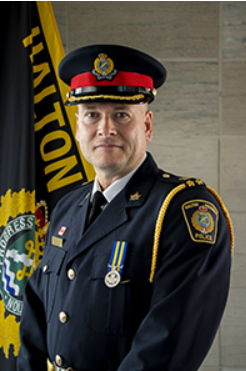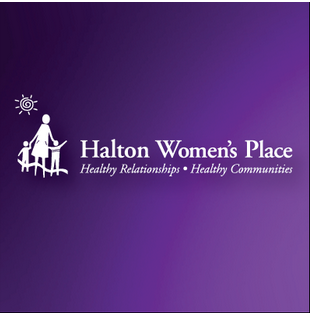 By Staff
By Staff
February 24th, 2022
BURLINGTON, ON
The Ontario Ministry of the Solicitor General’s has awarded the Halton Regional Police Service a Victim Support Grant
The $200,000 in funding, to be issued over a two-year period, will facilitate an expansion of supports offered to victims and survivors of intimate partner violence in Halton region through a multi-pronged strategy.
 Collectively, these complementary, victim-centric strategies focus on enhanced partnerships between police and non-police partners to better respond to the complex needs of survivors and help create safe places across our region for survivors to report violence and coercive and controlling behaviour.
Collectively, these complementary, victim-centric strategies focus on enhanced partnerships between police and non-police partners to better respond to the complex needs of survivors and help create safe places across our region for survivors to report violence and coercive and controlling behaviour.
A portion of the grant will be used to embed a dedicated violence against women (VAW) support worker from Halton Women’s Place* within the HRPS Intimate Partner Violence Offender Management Unit (IPV-OMU). As a result, the IPV-OMU will be better positioned to provide survivors safety support, community referrals, crisis, group and individual counseling, and advocacy, which will help mitigate risks to survivors.

Halton Regional Police Service Deputy Chief Jeff Hill
To better meet the needs of our diverse community, the VAW worker will also work closely with the IPV-OMU and the Victim Services Unit of the HRPS to access their volunteer crisis workers who amongst them, speak 15 languages. Additionally, HMC Connections** would also provide consultation and support in terms of strategies for providing services and supports that are culturally appropriate and address the complexities faced by newcomers to Canada.
A portion of the grant will be used to provide enhanced intimate partner violence risk assessment training to Halton Women’s Place staff and HMC Connections staff.
Recognizing that victims and survivors of intimate partner violence may have more comfort accessing support through non-police agencies, this training will ensure that non-police partners who are dealing directly with survivors of intimate partner violence have access to the same risk assessment tools as police. This training will bolster their ability to identify and mitigate risk for their clients.
Intimate partner violence is an ever-present secret carried by far too many in our community. The HRPS, and our community partners, know and see the toll of violence on families. In 2020, the HRPS responded, on average, to more than ten intimate partner violence incidents a day in the community.
The true incidence of intimate partner violence may never be known, as we recognize that much of it goes unreported to police. While the complexities of survivors are unique, the commonality they share is the need for a safe place to report intimate partner violence. The strategies funded through this grant will provide a safer pathway forward for survivors, including through reporting.
The HRPS, Halton Women’s Place, and HMC Connections extend their gratitude to the Solicitor General for granting this funding for new intimate partner violence victim supports. These initiatives will support our steadfast commitment to ensure that Halton region is a place where every person can safely live, work and play without fear of violence.
“The Halton Regional Police Service believes it is the fundamental right of every person to live free from the threat of violence and to feel safe in our community,” says Halton Regional Police Service Deputy Chief Jeff Hill. “This grant will help expand the reach of our collective efforts to ensure survivors know that they are not alone, that support is available, and ultimately help them begin their journey of healing.”
 “Halton Women’s Place is thrilled to expand on our partnership with the HRPS through this new initiative, which will provide women who have experienced violence with greater support and safety options,” says Laurie Hepburn, Executive Director of Halton Women’s Place. “This integrated approach with the placement of a VAW counsellor at the HRPS and support from HMC Connections will help build capacity and capabilities to best serve our community.”
“Halton Women’s Place is thrilled to expand on our partnership with the HRPS through this new initiative, which will provide women who have experienced violence with greater support and safety options,” says Laurie Hepburn, Executive Director of Halton Women’s Place. “This integrated approach with the placement of a VAW counsellor at the HRPS and support from HMC Connections will help build capacity and capabilities to best serve our community.”
“The risk assessment training is going to give our Settlement Specialists tools to identify people at risk and to make sure they now where and how to reach out for support,” says Kim Jenkinson, Executive Director of HMC Connections. “It is critical to get information to people early – they need to know they are not alone and there are people and systems that can help them. Being able to identify people at higher risk will also allow us to customize and tailor the information provided to the cultural needs of the client.”


















Domestic violence is more prevalent than we think. It also affects all socio-economic levels and many women, men and children live in constant fear.
You might be interested in listening to the CBC Podcast called Welcome to Paradise.
Welcome to Paradise
CBC Podcasts
While we commend the Solicitor General for this award we are concerned that it is not suficient to properly deal with intimate partner violence. “The Halton Regional Police Service believes it is the fundamental right of every person to live free from the threat of violence and to feel safe in our community,” says Halton Regional Police Service Deputy Chief Jeff Hill and Deputy Chief Hill is absolutely right. Every person means every person and not just women in an intimate male/female relationship. Men in a male/female relationship, homosexual/lesbian etc. are persons to whom this statement must be seen by police, hospitals, courts etc. to be encompassed by the phrase “intimate partner violence“. In our pro bono advocacy ministry we have been asked for assistance from men just as much as women in terms of this horrific crime when what was thought to be love in a consenting relationship turns into violence. Sadly, the black shadow picture used in the Gazette does not represent the truth in our Halton communities. We believe it needs to be changedor removed from this article. We personally believe it is unnecessary and relays a false image of the problem we all should try to eradicate. We will take this opportunity to add our names to the next available Police Services Board to make this point and hope it can begin to give an accurate understanding of what intimate partner violence really means and how the Board should consider reallocating some of these funds, or put more in the pot to ensure we really are tackling intimate partner violence as we should be in this age of human rights that we live in and not concentrating on one sector of victims.